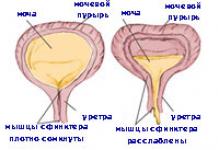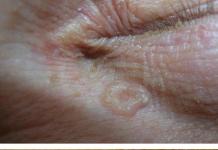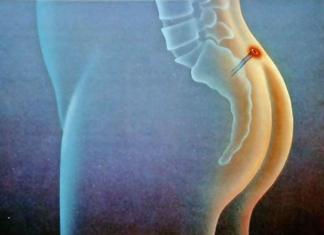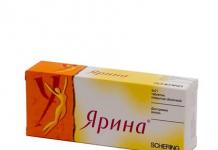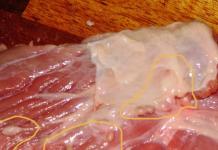Perineva is an angiotensin-converting enzyme inhibitor.
Release form and composition
Dosage form of Perineva – tablets:
- 2 mg each: white or almost white, slightly biconvex, round, chamfered;
- 4 mg each: white or almost white, slightly biconvex, oval, with a chamfer and a notch on one side;
- 8 mg each: white or almost white, slightly biconvex, round, with a chamfer and a notch on one side.
Tablets are produced in blister packs of 10, 14 or 30 pcs., in cardboard packs of 3, 6 or 9 packs of 10 pcs., 1, 2, 4 or 7 packs of 14 pcs., 1, 2 or 3 packs of 30 pcs.
1 tablet contains:
- active substance: perindopril erbumine – 2/4/8 mg;
- auxiliary components: magnesium stearate – 0.225/0.45/0.9 mg; colloidal silicon dioxide – 0.135/0.27/0.54 mg; microcrystalline cellulose – 11.25/22.5/45 mg; crospovidone – 4/8/16 mg; lactose monohydrate – 31.79/63.58/127.16; calcium chloride hexahydrate – 0.6/1.2/2.4 mg.
Indications for use
- chronic heart failure;
- stable coronary heart disease [to reduce the risk of developing cardiovascular complications due to a previous myocardial infarction and (or) coronary revascularization];
- arterial hypertension;
- prevention of recurrent stroke (in complex treatment with indapamide in patients with a history of cerebrovascular diseases - stroke or transient cerebral ischemic attack).
Contraindications
- history of angioedema (hereditary, idiopathic or angioedema, the development of which was caused by taking angiotensin-converting enzyme inhibitors);
- glucose-galactose malabsorption syndrome, Lapp lactase deficiency, hereditary galactose intolerance (tablets contain lactose);
- combined use with lithium preparations, products containing potassium, potassium-containing products and nutritional supplements, potassium-sparing diuretics;
- age under 18 years;
- pregnancy;
- breastfeeding period;
- individual intolerance to the components contained in the drug and other angiotensin-converting enzyme inhibitors.
Conditions/diseases for which Perinev tablets are prescribed with caution:
- stenosis of the artery of a single kidney, bilateral stenosis of the renal arteries, renovascular hypertension (possible development of severe renal failure And arterial hypotension);
- arterial hypotension, chronic heart failure in the stage of decompensation;
- chronic renal failure [creatinine clearance (CC)< 60 мл/мин];
- cerebrovascular diseases, including coronary insufficiency, coronary heart disease, cerebrovascular insufficiency, significant hypovolemia and hyponatremia due to a salt-free diet and (or) previous treatment with diuretics, dialysis, vomiting, diarrhea (due to the risk of excessive reduction blood pressure);
- hemodialysis using high-flow polyacrylonitrile membranes, hypertrophic obstructive cardiomyopathy, mitral or aortic valve stenosis (possible development of anaphylactoid reactions);
- condition after kidney transplantation (there is no experience of clinical use of Perineva);
- the use of low-density lipoproteins before apheresis, simultaneous desensitizing treatment with allergens, for example, hymenoptera venom (due to the risk of developing anaphylactoid reactions; Perineva is canceled before each procedure);
- connective tissue pathologies, including systemic lupus erythematosus, scleroderma;
- inhibition of bone marrow hematopoiesis during therapy with immunosuppressants, allopurinol or procainamide (probably the development of agranulocytosis and neutropenia);
- congenital deficiency of glucose-6-phosphate dehydrogenase (single cases of hemolytic anemia have been reported);
- belonging to the Negroid race (due to the risk of developing anaphylactoid reactions);
- general anesthesia during surgery (possible excessive decrease in blood pressure);
- diabetes mellitus (control of blood glucose concentration is required);
- hyperkalemia;
- elderly age.
Perineva: instructions for use (method and dosage)
Perinev tablets are taken orally, preferably in the morning, before meals. Frequency of administration – 1 time per day.
The dosage is determined by the doctor individually, depending on the severity of the pathology and the patient’s individual response to therapy.
- arterial hypertension (monotherapy or therapy in combination with other antihypertensive drugs): 1 tablet of Perinev 4 mg. With pronounced activation of the renin-angiotensin-aldosterone system [for example, against the background of severe arterial hypertension, chronic heart failure in the stage of decompensation, renovascular hypertension, hypovolemia and (or) hyponatremia], the initial dose is reduced by 2 times. If a therapeutic effect is not observed within 1 month, the dose, if the previous dose is well tolerated, can be increased to 1 pc. 8 mg each. The initial daily dose for elderly patients is 1 pc. 2 mg each, with a possible further increase to 1 pc. 4 mg and then, if necessary and subject to good tolerance of a smaller dose, up to a maximum of 1 pc. 8 mg each;
- chronic heart failure: initial dose – 1 pc. 2 mg each under medical supervision. After 14 days, the dose can be increased by 2 times, while monitoring blood pressure is required. Typically, for chronic heart failure with clinical manifestations, Perineva is used in combination with digoxin, beta-blockers and (or) potassium-sparing diuretics. For patients with chronic heart failure with concomitant renal failure and a tendency to hyponatremia, or receiving combination therapy with diuretics and (or) vasodilators, strict medical supervision should be established at the beginning of treatment;
- prevention of recurrent stroke due to a history of cerebrovascular pathologies: initial dose – 1 pc. 2 mg during the first 14 days before taking indapamide. Therapy begins at any time after a stroke (from 14 days to several years);
- stable coronary heart disease: initial dose – 1 pc. 4 mg, with its further increase, provided that the smaller dose is well tolerated, after 14 days, 2 times under the control of renal function. The initial dose for elderly patients is 1 pc. 2 mg each, with a possible increase after 7 days to 1 pc. 4 mg each. Further, if necessary and if smaller doses are well tolerated, it is possible to increase the dose to 1 pc. 8 mg each with mandatory preliminary monitoring of renal function.
For kidney pathologies, the dose of the drug is set depending on the degree of renal dysfunction. During therapy, regular determination of the concentration of creatinine and potassium ions in the blood serum is required.
- from 60 ml/min and above: 1 pc. 4 mg each;
- 30–60 ml/min: 1 pc. 2 mg each;
- 15–30 ml/min: 1 pc. 2 mg 1 time every 2 days;
- hemodialysis (HD< 15 мл/мин): 1 шт. по 2 мг в день процедуры.
When angiotensin-converting enzyme inhibitors are added to patients receiving diuretics, arterial hypotension may develop. In this regard, the second dose is canceled 2-3 days before the start of Perineva’s administration, or treatment is started with an initial dose of 1 pc. 2 mg each. In such cases, monitoring of renal function, blood pressure and the concentration of potassium ions in the blood serum is required. Further, the dose of Perineva can be increased, depending on the dynamics of blood pressure. If necessary, diuretics may be resumed.
If possible, against the background of a high risk of developing clinically significant arterial hypotension (for example, when taking high doses of diuretics), electrolyte disturbances and hypovolemia should be eliminated before starting Perineva therapy. Before starting treatment and during the period of taking the drug, careful monitoring of the concentration of potassium ions in the blood serum, the state of renal function and blood pressure is necessary.
Side effects
Possible adverse reactions(> 10% – very common; > 1% and< 10% – часто; >0.1% and< 1% – нечасто; >0.01% and< 0,1% – редко; < 0,01% – очень редко):
- central and peripheral nervous system: often – paresthesia, dizziness, headache; sometimes – mood or sleep disturbances; very rarely - confusion;
- organ of vision: often – visual impairment;
- organ of hearing: often – tinnitus;
- cardiovascular system: often – marked decrease in blood pressure; very rarely - angina pectoris, arrhythmia, stroke or myocardial infarction, possibly secondary, due to severe arterial hypotension in high-risk patients; frequency unknown – vasculitis;
- respiratory organs: often – shortness of breath, cough; sometimes – bronchospasm; very rarely – rhinitis, eosinophilic pneumonia;
- digestive tract: often - constipation, diarrhea, dyspepsia, dysgeusia, abdominal pain, vomiting, nausea; sometimes – dryness of the oral mucosa; rarely - pancreatitis; very rarely - cholestatic or cytolytic hepatitis;
- skin: often – itchy skin, rash; sometimes - urticaria, angioedema of the limbs or face; very rarely - erythema multiforme;
- musculoskeletal system: often – muscle cramps;
- genitourinary system: sometimes – impotence, renal failure; very rarely - acute renal failure;
- general disorders: often – asthenia; sometimes – increased sweating;
- hematopoietic organs and lymphatic system: very rarely against the background of long-term use of high doses of Perineva - pancytopenia, agranulocytosis, leukopenia/neutropenia, thrombocytopenia, decreased hemoglobin concentration and hematocrit; very rarely with congenital deficiency of glucose-6-phosphate dehydrogenase - hemolytic anemia;
- laboratory indicators: hyperkalemia, an increase in the concentration of plasma creatinine and urea in the blood serum, reversible after discontinuation of Perineva (especially in renal failure, severe chronic heart failure and renovascular hypertension); rarely - hypoglycemia, increased activity of liver enzymes and bilirubin in the blood serum.
Overdose
Main symptoms: cough, anxiety, dizziness, bradycardia, palpitations, tachycardia, hyperventilation, renal failure, hyponatremia, hyperkalemia (water-electrolyte imbalance), shock, marked decrease in blood pressure.
Therapy: in case of a pronounced decrease in blood pressure, place the patient in a horizontal position with elevated legs and replenish the volume of circulating blood, if possible, administer angiotensin II intravenously and (or) intravenous solution catecholamines. With severe bradycardia that cannot be controlled drug treatment, including atropine, - installation of a pacemaker (artificial pacemaker). It is necessary to monitor vital functions and the concentration of electrolytes and creatinine in the blood serum. Through hemodialysis, perindopril can be removed from the systemic circulation. It is important to avoid the use of high-flow polyacrylonitrile membranes.
special instructions
In cases of an episode of unstable angina (significant or not) during the first month of taking Perineva, the benefit-risk ratio is assessed.
Taking angiotensin-converting enzyme inhibitors can sharply lower blood pressure. In rare cases, with uncomplicated arterial hypertension, symptomatic arterial hypotension occurs after taking the first dose. Patients suffering from severe renin-dependent hypertension or with reduced circulating blood volume due to vomiting, diarrhea, hemodialysis, following a strict salt-free diet, or taking diuretics have an increased risk of excessive reduction in blood pressure.
In patients with severe chronic heart failure, both with and without concomitant renal failure, severe arterial hypotension may develop. It most often develops in patients with more severe chronic heart failure, those receiving high doses of loop diuretics, as well as those with renal failure or hyponatremia. These patients should be closely monitored at the beginning of therapy and during dose titration of Perineva. Also, special monitoring is required for patients with cerebrovascular diseases or coronary disease hearts in which, due to an excessive decrease in blood pressure, the development of myocardial infarction or cerebrovascular complications is possible.
In some cases, with chronic heart failure and normal/low blood pressure, an additional decrease in blood pressure is possible during the period of taking Perineva. This effect is expected and is usually not a reason to discontinue treatment. With arterial hypotension accompanied by clinical manifestations, a dose reduction or discontinuation of drug therapy may be required.
Against the background of symptomatic heart failure, arterial hypotension that develops during the initial period of taking Perineva can worsen renal function. In such cases, acute renal failure, usually reversible, was sometimes observed.
During the period of taking angiotensin-converting enzyme inhibitors, a syndrome may develop, starting with cholestatic jaundice and progressing to fulminant liver necrosis, sometimes with fatal outcome. The mechanism of occurrence of this syndrome is unclear. If jaundice or increased activity of liver enzymes is observed while taking Perineva, it should be discontinued immediately, and the patient should be closely monitored and appropriate examination should be carried out.
There are reports of the development of anemia, thrombocytopenia, neutropenia and agranulocytosis while taking Perineva. In patients with normal renal function and no other complications, neutropenia rarely occurs.
Taking the drug may cause a persistent, non-productive cough that stops when it is discontinued. This must be remembered in the differential diagnosis of cough.
In cases of extensive surgery or anesthesia with drugs that cause arterial hypotension, the formation of angiotensin II may be blocked in patients receiving Perineva with compensatory release of renin. 1 day before surgery, Perineva should be discontinued. If this is not possible, arterial hypotension developing according to the described mechanism is corrected by increasing the volume of circulating blood.
Taking Perineva may increase the concentration of potassium ions in the blood. The risk of hyperkalemia is increased in decompensated diabetes mellitus, heart and (or) renal failure, in patients taking potassium supplements, potassium-sparing diuretics or other drugs that cause hyperkalemia (for example, heparin). If taking these drugs during Perineva therapy is necessary, regular monitoring of potassium levels in the blood serum is required.
For diabetes mellitus (in patients taking oral hypoglycemic agents or insulin), careful monitoring of blood glucose concentrations is necessary during the first few months of taking the pills.
During therapy, patients should drive vehicles with caution and engage in potentially dangerous species activities.
Use during pregnancy and lactation
Perineva is contraindicated during pregnancy and lactation.
Use in childhood
In children under 18 years of age, the use of Perineva is contraindicated.
For impaired renal function
Perineva is prescribed with caution to patients with chronic renal failure. Correction of the regimen in case of renal failure is carried out in accordance with the CC.
Use in old age
According to the instructions, Perineva should be prescribed with caution to elderly patients.
Drug interactions
The effect of perindopril on drugs/substances when used in combination:
- lithium: reversible increase in its concentration in blood serum, lithium toxicity;
- hypoglycemic agents (insulin or oral hypoglycemic agents): may enhance their hypoglycemic effect, up to the development of hypoglycemia.
Effect of substances/drugs on perindopril during combination therapy:
- non-steroidal anti-inflammatory drugs, including acetylsalicylic acid in doses of 3 g per day or more, sympathomimetics: may weaken its antihypertensive effect;
- other antihypertensive drugs, angiotensin-converting enzyme inhibitors: may enhance its antihypertensive effect.
Analogues
Analogues of Perineva are Stopress, Piristar, Perindopril, Parnavel, Coverex, Hypernik, Arentopres.
Terms and conditions of storage
Store in a place protected from light and moisture, at temperatures up to 30 °C. Keep away from children.
Shelf life – 3 years.
Conditions for dispensing from pharmacies
Dispensed by prescription.
Price for Perineva in pharmacies
The approximate price for Perineva 4 mg for 90 tablets per package is 585 rubles, for 30 tablets per package – 244 rubles. The cost of Perineva 8 mg for 90 tablets per package is 860 rubles, for 30 tablets per package – 407.76 rubles.
Perineva (form - tablets) corresponds to the group of drugs that affect the renin-angiotensin system. Important Features medications from the instructions for use:
- Sold only with a doctor's prescription
- During pregnancy: contraindicated
- When breastfeeding: contraindicated
- IN childhood: contraindicated
- If renal function is impaired: with caution
Package
Compound
Perineva's medicine includes the following components:
- perindopril erbumine;
- lactose monohydrate, calcium chloride hexahydrate, crospovidone;
- colloidal silicon dioxide, MCC, magnesium stearate.
Release form
The drug is available in the form of round white biconvex tablets with a score on one side, 8, 4 or 2 mg. The blister contains 10, 14 or 30 tablets.
pharmachologic effect
Perineva has a hypotensive, vasodilating and cardioprotective effect.
Pharmacodynamics and pharmacokinetics
Perindopril has a therapeutic effect due to perindoprilat (active metabolite). It reduces systolic and diastolic pressure, peripheral vascular resistance, as a result of which blood pressure decreases. At the same time, peripheral blood flow accelerates, but the pulse does not increase.
The maximum effect appears after taking an average of 4-6 hours and lasts throughout the day.
Blood pressure drops quite quickly. Stabilization of pressure is observed after about a month of therapy. After stopping treatment, withdrawal syndrome does not develop.
Increases the elasticity of arteries, helps eliminate their structural changes. Normalizes the functioning of the heart muscle, reduces preload and afterload.
The maximum concentration of perindopril in the blood after administration is observed within an hour. It is quickly absorbed from the gastrointestinal tract. Bioavailability – 65-70%.
Simultaneous intake of food with the drug reduces the conversion of perindopril to perindoprilat, which, accordingly, reduces its bioavailability. Excreted through the kidneys, does not accumulate.
Indications for use
What are Perinev tablets for? The drug Perineva is prescribed in the following cases:
- prevention of recurrent stroke (combined therapy with Indapamide);
- chronic heart failure;
- arterial hypertension;
- stable cardiac ischemia.
Contraindications
The drug should not be taken if:
- sensitivity to any component of the drug;
- glucose/galactose malabsorption syndrome;
- age under 18 years;
- lactase deficiency;
- history of angioedema (angioneurotic, idiopathic or hereditary edema as a result of taking ACE inhibitors);
- galactose intolerance.
The drug is used with caution when:
- bilateral stenosis of the renal arteries;
- chronic renal failure;
- renovascular hypertension;
- stenosis of the artery of a single kidney;
- stages of decompensation of heart failure;
- hyponatremia, hypovolemia;
- hyperkalemia;
- cerebrovascular diseases;
- hypertrophic obstructive cardiomyopathy;
- after kidney transplantation;
- connective tissue diseases;
- general anesthesia;
- diabetes mellitus;
- in old age.
Side effects
The following may occur as a result of taking Perineva: side effects:
- paresthesia, dizziness, headaches;
- noise in ears;
- visual impairment;
- significant decrease in blood pressure, angina pectoris, arrhythmias, stroke, myocardial infarction, vasculitis;
- shortness of breath, bronchospasm, cough, rhinitis, eosinophilic pneumonia;
- abdominal pain, nausea, dysgeusia, vomiting, constipation, diarrhea, dyspepsia, dry mouth, pancreatitis, cholestatic or cytolytic hepatitis;
- itching, swelling of the extremities, face, rash, urticaria, erythema multiforme;
- muscle cramps;
- impotence, renal failure;
- increased sweating, asthenia;
- decrease in hemoglobin and hematocrit, neutropenia, leukopenia, thrombocytopenia, pancytopenia, agranulocytosis (manifests itself when used in high doses over a long period of time), hemolytic anemia (rarely occurs in patients with glucose-6-phosphate dehydrogenase deficiency);
- increased concentrations of urea and creatinine, hyperkalemia (reversible after stopping the drug), hypoglycemia, increased activity of liver enzymes.
Instructions for use of Perineva (Method and dosage)
The drug should be taken 1 time, in the morning, orally, before meals.
The instructions for the tablets indicate that the dose is selected for each patient individually, depending on the severity of the disease and response to therapy.
For arterial hypertension, Perineva's medicine can be used both in monotherapy and simultaneously with other drugs that lower blood pressure. The initial daily dose should not exceed 4 mg. If therapy does not produce results within a month, the dose can be increased to 8 mg (if the previous dose was tolerated normally).
Before you start taking this drug, you must stop taking diuretics for at least 3 days, since the combined use of these drugs can lead to arterial hypotension.
In case of chronic heart failure, the drug should be taken exclusively under medical supervision; you should start with a minimum dose (2 mg). The dose can be increased to 4 mg no earlier than after a week.
As a prophylactic against recurrent stroke, the initial dose of the drug is 2 mg. You can start taking the drug as early as two weeks after suffering a stroke.
For kidney diseases, the dose of the drug is prescribed individually, based on the diagnosis and degree of impairment. It is necessary to constantly monitor the patient’s condition, and in particular, the level of creatinine and potassium ions in the blood.
There is no need to adjust the dose for liver diseases.
Overdose
In case of overdose, the patient may experience the following symptoms: shock, renal failure, bradycardia, a sharp decline Blood pressure, hyponatremia, dizziness, cough, hyperkalemia, tachycardia, anxiety, hyperventilation, palpitations.
If there is a sharp decrease in blood pressure, the patient should take a lying position, slightly raise his legs, and it is also necessary to take measures to replenish the blood volume. For bradycardia that does not respond to therapy (in particular, anthropine), it is necessary to install a pacemaker (artificial pacemaker). Perindopril can be removed from the bloodstream by hemodialysis.
Interaction
Concomitant use of Perineva with diuretics can lead to arterial hypotension. You can reduce the risk of its occurrence by stopping diuretics or taking the drug in lower doses. Further increases in the dose of Perineva should be prescribed with caution.
The combination of perindopril with potassium-sparing diuretics, foods and supplements, as well as potassium supplements can lead to the development of hyperkalemia. They should be prescribed exclusively for hypokalemia with extreme caution, while monitoring ion levels.
Perindopril together with lithium preparations can cause lithium toxicity and increase the level of lithium in the blood, so it is not recommended to prescribe them simultaneously. If such a combination is necessary, the concentration of lithium in the blood should be monitored.
A decrease in the antihypertensive effect may occur as a result of the combination of Perineva with NSAIDs. Also, such therapy can lead to deterioration of the kidneys. In some cases, this can lead to acute kidney failure.
The antihypertensive effect of perindopril can be enhanced by the simultaneous use of other blood pressure lowering agents or vasodilators.
Hypoglycemic agents (including insulin) and Perineva when used together can cause an increase in the hypoglycemic effect, up to glycemia.
Sympathomimetics interfere with the therapeutic effect of perindopril; when prescribing them, it is necessary to monitor the effectiveness of Perineva.
Antidepressants, antipsychotics and general anesthetics can enhance the hypotensive effect.
A combination of Perineva with nitrates, acetylsalicylic acid, beta-blockers and thrombolytic agents is possible.
Terms of sale
On prescription.
Storage conditions
In a dark place at a temperature of 25 ° C.
Best before date
special instructions
For diabetes mellitus, during the first 3 months of taking Perineva, patients should monitor their blood glucose levels.
When driving, you should take into account the risk of side effects such as dizziness and a sharp decrease in blood pressure.
Perineva's analogues
The following drugs are considered analogues of this drug: arentopres, hypernic, coverex, parnavel, perinpress, perindopril.
Reviews about Perinevo
Among patients, reviews about this drug are quite contradictory. On the one hand, many note its effectiveness, on the other hand, the effect of taking the medicine is spoiled side effects, in particular cough and dizziness.
Perineva price
The cost of tablets in Russia, depending on the packaging, is 220 rubles (4 mg), 330 rubles (8 mg). In Ukraine, the price of 8 mg is 180 UAH, 4 mg is 130 UAH.
Europharm* 4% discount using promo code medside11
Pharmacy IFC
Reviews
Video on the topic
Perineva – official instructions by application.
Ko-Perineva - official instructions for use.
Tablets for hypertension Perindopril
What are the best blood pressure pills?
Perineva - indications for use
Blood pressure medications for older people
Live healthy! Blood pressure medications. What should older people not take? (05.10.2017)
Arterial hypertension is a serious disease that can cause life-threatening complications.
It is possible to normalize high blood pressure with the help of antihypertensive drugs, in particular ACE inhibitors.
One of these drugs is Perineva, created on the basis of perindopril.
You can buy pills in pharmacies only with a prescription, so you won’t be able to do without visiting a therapist.
Remember: hypertension is complex and dangerous disease, which needs to be treated under the supervision of a doctor.
pharmachologic effect
Perinev tablets are prescribed to patients to reduce diastolic and systolic blood pressure. Taking the drug leads to a decrease in peripheral vascular resistance and dilation of blood vessels, which together ensures the onset of a hypotensive effect.
Regular use of tablets by patients with CHF provides increased endurance during physical activity, normalization of cardiac activity in a state of activity and rest.
After oral administration of the drug, the therapeutic effect is registered after 60 minutes. This effect becomes maximum after 4 hours and persists throughout the day.
Indications for use of Perineva
Taking tablets is possible for:
- treatment of hypertension;
- preventing the development of cardiovascular complications in people suffering from stable coronary artery disease;
- prevention of recurrent stroke in people who have suffered a stroke or transient ischemic cerebral circulatory disorder (used in combination therapy with indapamide);
- treatment of CHF.

Mode of application
Perineva is usually prescribed 1 tablet per day, daily. In this case, the person himself chooses when to take the drug - in the evening or in the morning.
The optimal dosage for starting treatment is considered to be 4 mg (if the patient is a pensioner, treatment begins with 2 mg, gradually increasing the dose to 4 mg).
You should stop taking diuretics at least two or three days before you start taking Perineva. If it is impossible to stop treatment with diuretics, Perineva is prescribed in the smallest dosage - 2 mg, gradually increasing the dose to 4 mg. In the same way, a treatment regimen is selected for people with chronic heart failure.
The doctor’s task is to evaluate the effectiveness of the prescribed treatment 30 days after the start of therapy. If there is unsatisfactory dynamics, the drug is prescribed at a dose of 8 mg.
Release form, composition
 Perineva is a tablet for oral administration. Like many other drugs, Perineva is sold in cardboard packs, inside of which there are blisters with tablets. Each package comes with instructions for using the medicine.
Perineva is a tablet for oral administration. Like many other drugs, Perineva is sold in cardboard packs, inside of which there are blisters with tablets. Each package comes with instructions for using the medicine.
The active ingredient is perindopril ebumin in an amount of 4 or 8 mg.
Additional components are: crospovidone, lactose monohydrate, calcium chloride hexahydrate, magnesium stearate, MCC, colloidal silicon dioxide.
Interaction with other drugs
Perineva should not be prescribed in parallel with antihypertensive drugs. This combination can cause a sharp decrease in blood pressure, as well as the development of vascular collapse.
Taking the drug simultaneously with non-steroidal anti-inflammatory drugs and acetylsalicylic acid leads to a weakening of the antihypertensive effect. When prescribing such therapy, you need to correctly calculate the dose of the drug.
The tablets should be prescribed with caution to people taking potassium-sparing diuretics. With this drug interactions it is necessary to monitor blood pressure levels to avoid the development of electrolyte imbalance and hypovolemia. If necessary, the dose of the antihypertensive drug is adjusted.
Under the influence of Perineva tablets, the therapeutic effect insulin and hypoglycemic agents, which can lead to the development of hypoglycemia and even coma. People with diabetes are advised to take the medicine under the supervision of a physician and monitor their blood glucose levels. If necessary, the insulin dose is adjusted.
Side effects
| Peripheral nervous system, central nervous system | dizziness, headache, paresthesia; sometimes – mood or sleep disturbances; extremely rarely - confusion. |
| Hearing organ | often - the appearance of tinnitus. |
| Respiratory system | often – shortness of breath, coughing fits; sometimes – bronchospasm; extremely rarely – eosinophilic pneumonia, rhinitis. |
| Organ of vision | often - visual disturbances. |
| Vessels, heart | often – a noticeable decrease in pressure; extremely rarely - angina pectoris, arrhythmias, stroke or myocardial infarction, possibly secondary, caused by severe hypertension in people at high risk; unknown frequency – vasculitis. |
| Skin | often – skin rashes, itching; sometimes – angioedema of the limbs and/or face, urticaria; extremely rarely - erythema multiforme. |
| Digestive tract | often – dysgeusia, abdominal pain, constipation, nausea, diarrhea, vomiting, dyspepsia; sometimes – a feeling of dry mouth; rarely - pancreatitis; extremely rarely - cholestatic or cytolytic hepatitis. |
| General violations | often - asthenia; sometimes – increased sweating. |
| Musculoskeletal system | often – muscle cramps. |
| Lymphatic system and hematopoietic organs | extremely rarely - with long-term use in large doses thrombocytopenia, agranulocytosis, leukopenia/neutropenia, pancytopenia, decreased hematocrit and hemoglobin concentrations may be observed; extremely rarely - hemolytic anemia (with congenital deficiency of glucose-6-phosphate dehydrogenase). |
| Genitourinary system | sometimes – impotence, renal failure; extremely rarely - acute renal failure. |
| Laboratory indicators | increased serum urea content, increased plasma creatinine, hyperkalemia, reversible after cessation of therapy (especially in people with renovascular hypertension, severe CHF and renal failure); rarely - hypoglycemia, increased activity of liver enzymes and bilirubin in the blood serum. |
Overdose
If the patient takes the medicine uncontrollably and does not comply with the dosage, he experiences a sharp decrease in blood pressure. In this case, they may develop states of shock, cough, kidney failure, anxiety, hypoventilation (insufficiently intense breathing), a sharp slowdown or increase in heart rate.
If symptoms of a drug overdose occur, the person should be placed on their back with their legs raised above body level. Then it is necessary to introduce special solutions to replenish the volume of blood circulation. A hormone such as angiotensin II is also administered intravenously (in the absence of this, catecholamines can be used).
Contraindications
Perinev is not used in the following cases:

Perinev is used with caution when:
- renovascular hypertension;
- cerebrovascular pathologies (including coronary heart disease, cerebral circulatory insufficiency, coronary insufficiency) - the risk of excessive pressure reduction;
- bilateral stenosis of the renal arteries and stenosis of the artery of the only working kidney - the likelihood of developing renal failure, severe arterial hypotension;
- significant hyponatremia and hypovolemia (due to adherence to a salt-free diet, diarrhea, dialysis, previous treatment with diuretics, vomiting);
- arterial hypotension, CHF in the stage of decompensation; pathologies of connective tissue, inhibition of bone marrow hematopoiesis while taking immunosuppressants, procainamide or allopurinol - the risk of developing neutropenia and agranulocytosis;
- chronic renal failure;
- treatment of elderly people;
- hypertrophic obstructive cardiomyopathy, mitral/aortic valve stenosis, hemodialysis using polyacrylonitrile high-flow membranes - the likelihood of developing anaphylactoid reactions; surgical interventions with general anesthesia - the risk of excessive pressure reduction;
- hyperkalemia;
- condition after kidney transplant - no experience clinical application; diabetes mellitus (control of blood glucose levels);
- parallel conduct of desensitizing treatment with allergens (for example, hymenoptera venom), preparation for the LDL apheresis procedure - the risk of anaphylactoid reactions;
- treatment of people of the Negroid race - the possibility of developing anaphylactoid reactions;
- congenital deficiency of glucose-6-phosphate dehydrogenase - there were isolated cases of hemolytic anemia.
During pregnancy
 If the patient suspects pregnancy, is carrying a child or is breastfeeding, Perinev tablets are not prescribed. The active ingredient is capable of provoking pathological changes in the renal apparatus associated with its functioning. In some cases, oligohydramnios develops. Early ossification of the child’s cranial bone tissue may also be observed.
If the patient suspects pregnancy, is carrying a child or is breastfeeding, Perinev tablets are not prescribed. The active ingredient is capable of provoking pathological changes in the renal apparatus associated with its functioning. In some cases, oligohydramnios develops. Early ossification of the child’s cranial bone tissue may also be observed.
If women took Perineva for later pregnancy, their children showed signs of excess potassium levels, kidney failure developed, and a sharp decrease in blood pressure occurred.
If it was not possible to avoid taking Perineva during pregnancy, it is necessary to conduct an ultrasound examination to check the condition of the fetal skull bones and kidneys.
Storage conditions and periods
Tablets, regardless of their dosage, should be stored at temperatures up to +30 degrees in dark and dry places. Storing Pereneva in conditions of high humidity and bright sunlight is strictly prohibited.
It is important to ensure that the place where the tablets are stored is inaccessible to pets, children and people with mental illness.
The tablets can be stored and taken for two years.
Price
Packaging Perineva in Russia costs 260-1500 rubles. The price depends on the city, dosage, number of tablets in the pack.
Approximate price of Perineva 4 mg in Ukraine– 300 hryvnia, and 8 mg – 600 hryvnia.
Analogues
The following drugs have an effect similar to that of Perinev tablets:
- Prenessa;
Perineva: instructions for use and reviews
Perineva – ACE inhibitor(angiotensin-converting enzyme).
Release form and composition
Dosage form - tablets: almost white or white, slightly biconvex, with a chamfer: round in dosage 2 and 8 mg or oval in dosage 4 mg, on one side of the 4 and 8 mg tablets there is a separating line (in blister packs 10 pcs., in a cardboard box 3, 6 or 9 packs; in blister packs of 14 pcs., in a cardboard box 1, 2, 4 or 7 packs; in blister packs of 30 pcs., in a cardboard box 1, 2 or 3 packs).
Composition of 1 tablet:
- perindopril erbumine, semi-finished granules – 38.39/76.78/153.56 mg;
- active substance semi-finished granule – perindopril erbumine – 2/4/8 mg;
- auxiliary components of semi-finished granules: calcium chloride hexahydrate, lactose monohydrate, crospovidone;
- excipients of tablets: colloidal silicon dioxide, microcrystalline cellulose, magnesium stearate.
Pharmacological properties
Pharmacodynamics
Perindopril or kinase II is an angiotensin-converting enzyme (ACE) inhibitor, belongs to exopeptidases and is a prodrug from which the active metabolite perindoprilat is formed. Converts angiotensin I to angiotensin II (vasoconstrictor) and destroys the vasodilator bradykinin to an inactive hectapeptide. Due to the suppression of ACE activity, the level of angiotensin II decreases, plasma renin activity increases (negative feedback of renin release is inhibited) and aldosterone secretion decreases. ACE destroys bradykinin, so suppression of this enzyme also leads to an increase in the activity of the circulating and tissue kallikrein-kinin system, while activating the prostaglandin system.
The therapeutic effect of the drug is due to the effect of the active metabolite – perindoprilate.
Perindopril lowers blood pressure (both diastolic and systolic) in the lying and standing positions. It reduces total peripheral vascular resistance (TPVR), as a result of which blood pressure (BP) decreases. At the same time, peripheral blood flow accelerates, but the heart rate (HR) does not increase. As a rule, renal blood flow also accelerates, but the speed glomerular filtration does not change. It takes 4–6 hours for the maximum hypotensive effect to develop after a single oral dose; the effect persists for 24 hours, but even after 24 hours, 87–100% of the maximum effect is still provided. Blood pressure decreases quickly. Stabilization of the hypotensive effect is observed after 1 month of regular use of Perineva and persists for a long time. Discontinuation of therapy does not cause the development of withdrawal syndrome.
The active substance reduces myocardial hypertrophy of the left ventricle. Increases the concentration of high-density lipoproteins (HDL); in patients with hyperuricemia, reduces the concentration of uric acid. With long-term use, it normalizes the myosin isoenzyme profile and reduces the severity of interstitial fibrosis.
The drug eliminates structural changes in small arteries and improves the elasticity of large arteries. By reducing pre- and post-load, it normalizes heart function. In chronic heart failure (CHF), it reduces peripheral vascular resistance, filling pressure in the right and left ventricles, increases cardiac output and cardiac index. When taking the drug in the initial daily dose 2 mg in patients with CHF functional classes I and II according to the NYHA classification, there is no statistically significant decrease in blood pressure compared to placebo.
Pharmacokinetics
Perindopril in tablet form is rapidly absorbed from gastrointestinal tract, it takes 1 hour to achieve maximum plasma concentration. Bioavailability is about 65–70%.
About 20% of the absorbed substance is converted into the active metabolite perindoprilat. The maximum content in plasma is observed after 3–4 hours. Half-life (T 1/2) – 1 hour. The volume of distribution of unbound perindoprilate is 0.2 l/kg. The connection with blood plasma proteins is insignificant, the connection with ACE is less than 30%, but depends on its concentration. Excreted by the kidneys. Does not accumulate. T1/2 of the unbound fraction is 3–5 hours; in patients with chronic heart and renal failure and the elderly, excretion is slow.
In patients with liver cirrhosis, the hepatic clearance of perindopril changes, but the total amount of metabolite formed remains unchanged, so dose adjustment of Perineva is not required.
Food reduces the conversion of perindopril to perindoprilat, thereby reducing the bioavailability of the drug.
Perindoprilat is removed by peritoneal dialysis and hemodialysis (rate 70 ml/min., 1.17 ml/sec.).
Indications for use
According to the instructions, Perineva is intended for the treatment of arterial hypertension and chronic heart failure.
The drug is used (as part of complex therapy with indapamide) to prevent recurrent stroke in patients with a history of cerebrovascular diseases.
An ACE inhibitor is also prescribed for stable coronary heart disease (CHD) to reduce the risk of cardiovascular complications in patients who have undergone coronary revascularization and/or myocardial infarction.
Contraindications
Absolute contraindications (conditions/diseases for which the drug is prohibited from taking):
- age under 18 years;
- Lapp lactase deficiency, hereditary galactose intolerance, glucose-galactose malabsorption syndrome;
- history of idiopathic, hereditary, or angioedema resulting from taking ACE inhibitors;
- increased individual sensitivity to any component of the drug or other ACE inhibitors.
Relative contraindications (conditions/diseases in which the use of the drug is possible, but only after assessing the benefits and risks, with extreme caution and under special medical supervision):
- CHF in the stage of decompensation;
- arterial hypotension;
- hypertrophic obstructive cardiomyopathy;
- aortic or mitral valve stenosis;
- renovascular hypertension;
- cerebrovascular diseases (including coronary heart disease, cerebrovascular insufficiency, coronary insufficiency);
- chronic renal failure (creatinine clearance less than 60 ml/min);
- bilateral renal artery stenosis or stenosis of the artery of a single kidney;
- condition after kidney transplantation;
- hemodialysis using high-flow polyacrylonitrile membranes;
- period before the low-density lipoprotein (LDL) apheresis procedure;
- severe hypovolemia and hyponatremia (for example, due to vomiting, diarrhea, salt-free diet, dialysis, previous diuretic therapy);
- hyperkalemia;
- congenital deficiency of glucose-6-phosphate dehydrogenase;
- connective tissue diseases such as systemic lupus erythematosus or scleroderma;
- diabetes;
- inhibition of bone marrow hematopoiesis while taking immunosuppressants, procainamide, allopurinol;
- surgical intervention;
- elderly age;
- belonging to the Negroid race;
- simultaneous desensitizing therapy with allergens (for example, hymenoptera venom).
Instructions for use of Perineva: method and dosage
It is advisable to take Perinev tablets before meals, once a day - in the morning.
The doctor selects the dose for the patient personally, based on the indication and individual effectiveness of treatment.
Regardless of the indications, the dosage can be increased only if the drug is well tolerated at the previous dose used.
Arterial hypertension
The drug is used either as monotherapy or as part of a combination treatment, in combination with other antihypertensive drugs.
The recommended starting dose of Perineva is 4 mg. For patients with pronounced activation of the RAAS (renin-angiotensin-aldosterone system), for example, with severe arterial hypertension, renovascular hypertension, decompensated CHF, hyponatremia, hypovolemia - 2 mg. If the effect is insufficient after a month of treatment, the daily dose can be increased to 8 mg.
If Perineva is prescribed to patients receiving diuretics, in order to avoid the development of arterial hypotension, it is recommended to start taking perindopril 2-3 days after stopping the diuretic or prescribe it at a minimum dose of 2 mg. In this case, the concentration of potassium ions in the blood serum, blood pressure and renal function should be monitored. Depending on the dynamics of blood pressure, the dose can be increased. Diuretic therapy is resumed if necessary.
Elderly patients are prescribed perindopril at a dose of 2 mg at the beginning of therapy. Further, according to indications, it is increased to 4 mg and, if the effect is still not enough, to 8 mg.
Prevention of recurrent stroke in patients with a history of cerebrovascular diseases
Perineva is taken at a dose of 2 mg 2 weeks before the appointment of indapamide.
You can start preventive therapy after a stroke at any time, even after several years, but not earlier than 2 weeks.
Chronic heart failure
The optimal starting dose is 2 mg. After 2 weeks, if necessary, under the control of blood pressure, it is increased to 4 mg. If the disease is accompanied by clinical manifestations, beta-blockers, potassium-sparing diuretics and/or digoxin are additionally prescribed.
In case of CHF, renal failure, a tendency to electrolyte disturbances (hyponatremia), or the simultaneous use of diuretics and/or vasodilators, treatment should be started under the strict supervision of a physician.
If there is a high risk of developing clinically significant arterial hypotension (for example, with concomitant use of a diuretic in high doses), it is recommended, if possible, to eliminate electrolyte disturbances and hypovolemia before prescribing Perineva. Before and during therapy, blood pressure, the concentration of potassium ions in the blood serum and the state of renal function should be constantly monitored.
Stable ischemic heart disease
Elderly patients begin to be treated with a dose of 2 mg. If the effect is insufficient, after mandatory preliminary monitoring of renal function, after a week it can be increased to 4 mg, and after another week - to 8 mg.
In case of renal failure, the dose is determined based on the results of a kidney function test, namely the creatinine clearance (CC):
- CC > 60 ml/min – 4 mg/day;
- CC 30–60 ml/min – 2 mg/day;
- CC 15–30 ml/min – 2 mg every other day;
- QC< 15 мл/мин (гемодиализ) – 2 мг в день диализа.
During treatment, monitoring of the concentration of creatinine and potassium ions in the blood serum is required.
Side effects
Separation of side effects by prevalence: very often - > 1/10, often - from > 1/100 to< 1/10, нечасто – от >1/1000 to< 1/100, редко – от >1/10000 to< 1/1000, очень редко – < 1/10000, включая отдельные сообщения.
Side effects that may occur during perindopril therapy:
- from the organ of hearing: often – tinnitus;
- from the organ of vision: often – visual impairment;
- from the central and peripheral nervous system: often – paresthesia, headache, dizziness; uncommon – mood changes, sleep disturbances; very rarely - confusion;
- from the respiratory system: often – shortness of breath, cough; uncommon – bronchospasm; very rarely – rhinitis, eosinophilic pneumonia;
- from the musculoskeletal system: often – muscle cramps;
- from the outside genitourinary system: uncommon – impotence, renal failure; very rarely - acute renal failure;
- from the digestive tract: often - diarrhea, constipation, dyspepsia, abdominal pain, nausea, vomiting, dysgeusia; uncommon – dry mucous membrane oral cavity; rarely - pancreatitis; very rarely - hepatitis (cholestatic or cytolytic);
- from the outside of cardio-vascular system: often – marked decrease in blood pressure; very rarely - angina pectoris, arrhythmias, as well as stroke and myocardial infarction (in high-risk patients, possibly secondary, due to severe arterial hypotension); frequency unknown – vasculitis;
- from the hematopoietic organs and lymphatic system: very rarely in patients with congenital deficiency of glucose-6-phosphate dehydrogenase - hemolytic anemia; very rarely with long-term use of the drug in high doses - agranulocytosis, thrombocytopenia, pancytopenia, leukopenia/neutropenia, decreased hemoglobin concentration and hematocrit;
- from the outside skin: often – skin rashes, itching; uncommon – urticaria, angioedema of the face and extremities; very rarely - erythema multiforme;
- laboratory tests: hyperkalemia, increased concentrations of plasma creatinine and urea in the blood serum, especially in patients with severe CHF, renovascular hypertension and renal failure (reversible after discontinuation of the drug); rarely - hypoglycemia, increased bilirubin in the blood serum and liver enzyme activity;
- other reactions: often – asthenia; uncommon – increased sweating.
Overdose
Signs of overdose: marked decrease in blood pressure, bradycardia, palpitations, tachycardia, water and electrolyte imbalance (hyperkalemia, hyponatremia), hyperventilation, cough, anxiety, dizziness, renal failure, shock.
If there is a pronounced decrease in blood pressure, it is necessary to lay the patient down and elevate his legs, replenish the circulating blood volume (CBV), and, if possible, administer angiotensin II and/or a catecholamine solution intravenously. If bradycardia develops that is not amenable to drug therapy (including atropine), a pacemaker (artificial pacemaker) is installed. Treatment of overdose should be carried out under the monitoring of vital functions of the body, the concentration of creatinine and electrolytes in the blood serum. The drug can be removed from the systemic circulation by hemodialysis, but the use of high-flow polyacrylonitrile membranes should be avoided.
special instructions
Like other ACE inhibitors, perindopril can cause a sharp decrease in blood pressure. Symptomatic hypotension after the first dose in patients with uncomplicated arterial hypertension rarely occurs. An excessive decrease in blood pressure is likely in individuals with reduced blood volume due to a strict salt-free diet, hemodialysis, diuretic therapy, vomiting and diarrhea, as well as with renin-dependent hypertension, severe CHF, including the concomitant presence of renal failure. More often, a pronounced decrease in blood pressure is observed in patients with severe CHF receiving high doses of loop diuretics, as well as in renal failure and hyponatremia. These categories of patients require careful monitoring at the beginning of treatment and during the selection of the optimal dose. The same applies to patients with coronary heart disease and cerebrovascular diseases, since an excessive decrease in blood pressure in them is fraught with myocardial infarction and cerebrovascular complications.
If the patient has arterial hypotension, it is necessary to place him in a horizontal position and raise his legs; if necessary, inject sodium chloride solution intravenously to increase the blood volume. Transient (passing) arterial hypotension is not a contraindication for continued treatment. After restoration of blood pressure and blood volume, therapy can be resumed, only it is necessary to select the correct dose of Perineva.
In some patients with CHF, including those with low blood pressure, the drug may cause an additional decrease in blood pressure. This effect is expected and is often not a reason to stop therapy. In cases where arterial hypotension is accompanied clinical symptoms, reduce the dose of the drug or cancel it completely.
If an episode (even a minor one) of unstable angina develops in patients with stable coronary heart disease during the first month of using Perineva, the benefit-risk ratio for further treatment should be assessed.
Patients with a history of angioedema not associated with ACE inhibitors are at high risk of angioedema as a reaction to perindopril.
If angioedema develops, Perineva must be discontinued immediately. For swelling of the lips and face, no special treatment is required; it is enough to take antihistamines to reduce the severity of symptoms. Swelling of the tongue, larynx, or glottis can lead to death. If such a reaction occurs, it is necessary to inject adrenaline (epinephrine) subcutaneously and ensure airway patency. More often, angioedema during therapy with ACE inhibitors occurs in patients of the Negroid race.
In rare cases, anaphylactic reactions develop in patients who undergo LDL apheresis using dextran sulfate absorption during treatment with Perineva; therefore, it is recommended to discontinue the ACE inhibitor before each procedure. The same applies to patients who are prescribed a course of desensitization - the drug should be temporarily discontinued before each procedure.
If during treatment there is an increase in the activity of liver enzymes or jaundice appears, the drug should be discontinued and appropriate examination carried out, since Perineva can cause the development of a syndrome starting with cholestatic jaundice and progressing to a fulminant course of hepatitis with extensive liver necrosis, even death.
ACE inhibitors may contribute to the development of renal failure and severe arterial hypotension in patients with renovascular hypertension, so treatment should be started with small doses, under close medical supervision and with further adequate titration of the drug dose. During the first weeks of taking Perineva, it is necessary to discontinue diuretics and constantly monitor renal function.
In some cases, in patients with arterial hypertension and previously undiagnosed renal failure, especially with concomitant use of diuretics, there may be a slight and temporary increase in creatinine and urea concentration in the blood serum, which requires a reduction in the dose of the drug and/or discontinuation of the diuretic.
Patients on hemodialysis should not use high-strength membranes for the session, otherwise persistent, life-threatening anaphylactic reactions may develop.
In patients with diabetes mellitus receiving insulin or taking oral hypoglycemic agents, blood glucose levels should be kept under control when initiating Perineva therapy.
Patients awaiting planned surgery or other procedures using anesthesia with drugs that can cause arterial hypotension should discontinue the ACE inhibitor one day before. If this is not possible, arterial hypotension can be corrected by increasing blood volume.
Perindopril may increase the concentration of potassium ions in the blood. The likelihood of developing hyperkalemia increases with renal and/or heart failure, decompensated diabetes mellitus, in the case of simultaneous use potassium-sparing diuretics, potassium supplements, or other drugs that can cause hyperkalemia (for example, heparin). If the combined use of these drugs is justified, the level of potassium in the blood serum should be constantly monitored.
When performed on a patient differential diagnosis cough, it should be taken into account that perindopril can cause a persistent, unproductive cough - it stops after discontinuation of the drug.
Impact on the ability to drive vehicles and complex mechanisms
The drug can cause dizziness and arterial hypotension, which can affect reaction speed and concentration, which should be taken into account by drivers and people employed in potentially hazardous industries.
Use during pregnancy and lactation
Perineva is contraindicated during pregnancy. If pregnancy occurs during treatment, the drug should be discontinued immediately. When used in later stages, perindopril can cause fetotoxic (oligohydramnios, decreased renal function, delayed ossification of the skull bones) and neonatal toxic (renal failure, hyperkalemia, arterial hypotension) effects. If for some reason the drug was used in the II-III trimesters, it is necessary to conduct an ultrasound examination of the fetal kidneys and skull bones.
There is no data on the penetration of perindopril into breast milk, therefore, if it is necessary to use Perineva, women are advised to stop breastfeeding.
Use in childhood
The safety and effectiveness of the drug in children and adolescents under 18 years of age have not been confirmed, therefore Perineva is not used in pediatric practice.
For impaired renal function
In patients with kidney disease, the drug is used with caution; the dose is determined individually depending on the degree of renal dysfunction and therapeutic response. Treatment should be carried out under regular monitoring of creatinine and potassium ions in the blood serum.
For liver dysfunction
For diseases and impaired liver function, dose adjustment of Perineva is not required.
Use in old age
Perineva is used with caution. Treatment in old age should be started with a dose of 2 mg/day. If the effect is insufficient, but only if the drug is well tolerated, after a week it can be increased to 4 mg, and after another week - to 8 mg.
Drug interactions
- sympathomimetics: the effectiveness of perindopril may be reduced. If the use of such a combination is necessary, the effectiveness of Perineva should be regularly assessed;
- diuretics: excessive arterial hypotension may develop. The risk can be reduced by intravenous administration of sodium chloride solution 0.9%, the use of perindopril in lower doses, or discontinuation of the diuretic;
- potassium supplements, potassium-sparing diuretics, potassium-containing products and nutritional supplements: The risk of developing hyperkalemia increases. Such combinations are undesirable except in cases of hypokalemia;
- Lithium preparations: a reversible increase in the concentration of lithium in the blood serum and the development of toxicity are possible. The use of this combination is not recommended. If combined use of drugs is necessary, serum lithium levels should be monitored;
- hypoglycemic agents: their effect may be enhanced and hypoglycemia may develop; the risk is especially high in patients with renal failure in the first weeks of combination therapy;
- tricyclic antidepressants, antipsychotics (neuroleptics), agents for general anesthesia (general anesthetics): the hypotensive effect of the drug may be enhanced;
- non-steroidal anti-inflammatory drugs, including acetylsalicylic acid in a daily dose of 3000 mg: the effect of perindopril may be weakened, the risk of increasing the level of potassium ions in the blood serum increases, as a result of which renal function may deteriorate (reversible effect), in rare cases, up to the development of acute renal failure, especially in patients with concomitant renal impairment, for example, dehydration and the elderly;
- other antihypertensive agents and vasodilators: the antihypertensive effect may be enhanced.
If necessary, Perineva can be prescribed in combination with such medicines, such as nitrates, β-blockers, thrombolytic drugs, acetylsalicylic acid in doses that have an antiplatelet effect.
Analogues
Analogs of Perineva are: Coverex, Arentopres, Perindopril, Perindopril-Teva, Perindopril-Richter, Perindopril-TAD, Perindopril-C3, Parnavel, Hypernik, Prestarium, Perinpress, Perineva, Perineva Ku-tab, Piristar, Prenessa, Stopress.
Terms and conditions of storage
Keep away from children.
Storage conditions: temperature not higher than 30 °C.
Shelf life – 3 years.
Result: positive feedback
14 +
Has features
Advantages: Reduces blood pressure gradually, does not cause tachycardia and dizziness, copes with high blood pressure, did not cause dangerous side effects
Disadvantages: The effect reaches a maximum after 3-5 hours, caused dry mouth, in case of overdose it brings the pressure to a critical minimum
I switched to Perineva after Lisinopril, which, although it effectively reduced my very high pressure, but did it too quickly and caused severe nausea with dizziness. The doctor assured that Perineva does not have such shortcomings and acts gently, but no less powerful. I didn’t lie about the softness, I took the first pill, and the room didn’t start spinning before my eyes, and the tachycardia attack didn’t happen. Only things didn’t go so smoothly with the power of action. I measured the pressure after 1 hour, the tanometer showed 150/110 (before that it was 170/120). Yes, there was a certain effect, but it was very far from the desired result. I measured it another hour later, 130/100. I was already accustomed to the fact that Lisinopril reduced it to 110/90 in almost 40 minutes, so I thought that Perineva was simply rather weak in effect, so I took another half of the tablet (this is 2 mg). And I immediately paid for it - after half an hour I began to feel dizzy, I vomited, my heart beat against my ribs with furious force. The pressure has dropped, yes. It was measured by the ambulance, which I called in a panic attack, their tanometer showed 100/70, a value too low for me. Then the doctor explained to me that Perineva reduces blood pressure greatly, but slowly, over 3-5 hours, depending on its initial value. You shouldn't expect anything from this drug. fast action and take an additional dose without waiting for the final result, otherwise the same story may turn out that happened to me. I listened to all this carefully and for the second time, after drinking my 4 mg, I sat down to wait. Indeed, having measured the pressure after 4 hours, I saw that it had reached the desired 110/85. During the day I measured it 3 more times, just to be on the safe side, but the pressure practically did not change even in the evening, it only rose to 120/100, but for me this is no longer critical...
Result: negative feedback
13 +
And it’s unclear how it works, and there are many side effects
Advantages: No
Disadvantages: Reduces the lower value too much, caused pain in the liver area, nausea and abdominal pain, led to vision problems
Perineva reduces blood pressure quite significantly, but what good is it if it happens topsy-turvy. While the drug brings the upper value in order, it reduces the lower value too much. As a result, I get something incomprehensible, 120 to 70. My heart immediately begins to beat hard and slowly, it becomes difficult to breathe, a lump forms in my throat, my strength disappears somewhere. But even this is not all, because Perineva is full of side effects. I didn’t have time to be treated with his help for even a week and a half, and almost every day in the morning I began to feel very sick, while my stomach was twisting and cutting. After lowering the pressure, I always had to endure severe headache and tinnitus. By the end of the second week, problems with vision began, the image became somehow fuzzy, as if you were looking through a cloudy glass. Finally, I started to feel pain in my right side, and then I decided that enough experiments were enough, the drug didn’t suit me, and that was that.
Nadezhda Reply
The cough bothers me a lot during the day and even at night twice, so insomnia began to torment me until I cleared my throat, and the cough became a viscous liquid that hurt my throat, I keep stopping drinking Perineva, it doesn’t suit me, but the pressure varies.
NATALIA Reply
Nadezhda, I noticed that all drug names ending in “adj” cause coughing to the point of vomiting, and this medicine contains perendopril, and indopamide, which is useless for me. They still haven’t been able to find me a medicine for the morning. Share what helps you, everyone chooses everything empirically anyway.
Result: neutral review
Problematic remedy
Advantages: When taken on an empty stomach, it reduces blood pressure well, long-lasting effect
Disadvantages: When taken during or after meals, the effect is very weak; when taken on an empty stomach, it causes wild cramps
An extremely inconvenient remedy. You need to drink Perineva strictly half an hour before meals, and remembering to do this when you are in a hurry to get to work is very difficult. If you take the tablet during or after food, the drug is poorly absorbed and therefore has a very weak effect. But the main difficulty is that if you take the drug on an empty stomach, it will certainly cause severe nausea and burning. I have been convinced of this more than once, although I have neither ulcers nor even gastritis. The nausea then lasted the whole day, and it was simply unbearable to endure it every day. It turns out to be some kind of dilemma - if you drink before meals, it’s bad for your stomach, if you drink after, it’s bad for your blood pressure. Because of this, I stopped drinking Perineva and switched to Enalapril. Oddly enough, these tablets, which cost almost half the price, do not have such disadvantages, so it is better to take them.
Result: positive feedback
Effective but slow
Advantages: Eliminates symptoms of CHF, quite affordable
Disadvantages: Requires long treatment, severely harms the liver, has other side effects
With the help of Perineva, it is possible to treat CHF, but for this you need to take the drug for a very long time, because it cannot be called fast-acting. It took me a whole 3.5 months just for my heart rate to return to normal, and other symptoms of the disease such as shortness of breath and angina attacks left me alone only by the 7th month of taking it. With such a long treatment, various side effects inevitably arise; in my case, the most dangerous was liver intoxication. Treating Perineva without taking hepaprotectors in parallel is a dead end, I unknowingly did so, and then I had to restore the liver for 3 months. There were other side effects, no less unpleasant, but not as dangerous, such as night cramps and constipation, but after stopping Perineva they immediately disappeared. But the very noticeable effect achieved has not disappeared. Now I’m taking a different drug, but I still live without shortness of breath and chest pain, so I still recommend Perineva, the main thing is to be prepared for a long period of use and side effects.
Result: negative feedback



